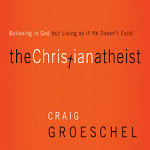I am becoming convinced that there is a systemic dichotomy in African-American family culture. First, let me state that when I refer to “African-Americans” I am specifically referring to those of us who are descendants of the North American slave population, not all dark-skinned North-Americans nor modern immigrants from African countries. Here is the dichotomy: African-Americans highly value family relationships, yet we have adapted to a culture that systemically breaks our families apart.
From 1984 to 1992, the Huxtable family of The Cosby Show represented not only the ideal African-American family, but the ideal American family. The father and mother both had advanced degrees and careers, and yet were able to spend considerable time raising their children, all of whom grew up to be well-adjusted, mostly independent, successful adults. In addition to Cliff Huxtable’s love of Jazz, one way in which the show specifically featured family culture African-American was the multi-generational aspect. Early in the show’s life, grandparents were regularly featured, and when Cliff and Claire became grandparents themselves, four generations interacted. Although humorous in his approach, Bill Cosby portrayed a strong, wise, and sympathetic father figure, who was complemented by mother with equal attributes. Dr. Cosby is intelligent enough, talented enough, and culturally engaged enough to know that we must teach and show people the heights to which we can and should aspire, and I have heard enough of his speeches to know that he understands that we as an African-American culture are falling short.
Since the days of slavery, African-American culture has maintained strong family ties. Even when masters could not care less of keeping track of familial ties of the people they bought and sold, the slaves knew. A male slave might refuse to “stud” with a female slave because he would know that woman to be a relative. Even today, it is not uncommon to have a family network that extends well beyond first-cousins, and across multiple generations. Two years ago, my father’s cousin helped me to purchase a new HVAC system for my home.
Probably the most controversial thing I will say in this piece is that the problem of broken African-American families is systemic. Recently, I have been reading Heather Andrea Williams’ (2012) Help Me to Find My People and Michael O. Emerson’s & Christian Smith’s (2001) Divided by Faith. Even though they are written about different eras in American history, one attribute that ties these books together is the separation that occurred and continues to occur in African-American families because of the dominate culture. In the pre-Civil War U.S. it was common for slave families to be broken apart and sold as separate entities. In the modern era, African-American males are incarcerated for non-violent offences at an alarmingly higher rate than others. By age 21, if they live that long, a majority of African-American males are or have been engaged in the criminal justice system, or died before reaching age 21. Numerous studies demonstrate unequal justice in the U.S. This “shortage” of males has led to: 1) some males feeling they do not need to marry as there are many available females and they can propagate their lineage without getting married, 2) many single parent mother households, which puts them at an economic disadvantage, and 3) people like me, who, consciously or unconsciously, have abandoned some part or parts of our culture or community (marring outside our ethnicity or moving out of “the neighborhood” as examples) in order to improve both our own and our children’s opportunities in the broader culture. Christian rap group SFC spoke true in their 1990 song “Kill the Spirit” of the poverty, violence, imprisonment, promiscuity, and lack of spirituality that breaks families. Just as our slave ancestors adapted everything from their diet to spirituality in order to simply survive, our family structure, with many exceptions of course, has adapted to survive instead of overcome (Romans 12:21), and we may be surviving on life support.
There both is and is not a simply solution to this dichotomy. I believe Christ is above culture, and entire nations can be changed through the transformation of individuals (Jonah 3). Practically speaking, for the Church, whether in an African-American denomination or a multi-ethnic context, approaches to ministry have to both work with the reality of what is and work towards changing the future. We cannot pretend that African-American families are okay and call ourselves doing relevant ministry, nor can we allow ourselves to remain in a mindset and culture that expects our families to be broken. God loves us, and calls us just as we are, but loves us too much to allow us to remain just as we are (1 Corinthians 10:13, 1 John 2:15-17). But just as he who called you is holy, so be holy in all you do; for it is written: “Be holy, because I am holy.” (1 Peter 1:15-16).
My question to all is: In what practical ways should the Christian Church minister to African-American families?
References
Williams. H. A. (2012) Help Me to Find My People: The African American Search for Family Lost in Slavery. Chapel Hill: The University of North Carolina Press.
Emerson, M. O. & Smith, C. (2001). Divided by Faith: Evangelical Religion and the Problem of Race in America. New York: Oxford University Press.
SFC. (1990). “Kill the Spirit.” A Saved Man in the Jungle. Broken Records.
©2012 Paul Tillman






